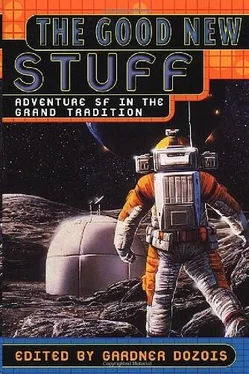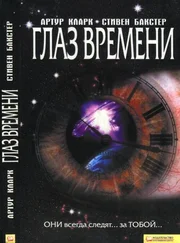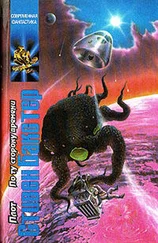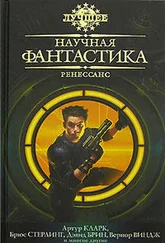Стивен Бакстер - The Good New Stuff
Здесь есть возможность читать онлайн «Стивен Бакстер - The Good New Stuff» весь текст электронной книги совершенно бесплатно (целиком полную версию без сокращений). В некоторых случаях можно слушать аудио, скачать через торрент в формате fb2 и присутствует краткое содержание. Год выпуска: 2002, ISBN: 2002, Издательство: St. Martin's Griffin, Жанр: Фантастика и фэнтези, на английском языке. Описание произведения, (предисловие) а так же отзывы посетителей доступны на портале библиотеки ЛибКат.
- Название:The Good New Stuff
- Автор:
- Издательство:St. Martin's Griffin
- Жанр:
- Год:2002
- ISBN:0-312-26456-9
- Рейтинг книги:3 / 5. Голосов: 1
-
Избранное:Добавить в избранное
- Отзывы:
-
Ваша оценка:
- 60
- 1
- 2
- 3
- 4
- 5
The Good New Stuff: краткое содержание, описание и аннотация
Предлагаем к чтению аннотацию, описание, краткое содержание или предисловие (зависит от того, что написал сам автор книги «The Good New Stuff»). Если вы не нашли необходимую информацию о книге — напишите в комментариях, мы постараемся отыскать её.
The Good New Stuff — читать онлайн бесплатно полную книгу (весь текст) целиком
Ниже представлен текст книги, разбитый по страницам. Система сохранения места последней прочитанной страницы, позволяет с удобством читать онлайн бесплатно книгу «The Good New Stuff», без необходимости каждый раз заново искать на чём Вы остановились. Поставьте закладку, и сможете в любой момент перейти на страницу, на которой закончили чтение.
Интервал:
Закладка:
A shadow swept over him, a gigantic condor-sized shape among the vultures, circling downward, parting the smaller birds, boring toward Defoe in a tight spiraling dive, hiding in the orange glare of Delta Eridani. Almost on top of him, the big shape sideslipped, spilling air. He recognized Ellenor Battle, wearing an ornithopter harness— a powered version of the wings people flew with on Spindle. She flew like she had been born with them, doing a low-level stall and landing feetfirst.
Never let down your guard on Saber-tooth Steppe. Defoe had been blissfully alone, sharing the day with vultures and a dead bison. Now without warning Ellenor Battle was standing over him, demanding an explanation. What excuse could he have for jumping ship, cutting fences, and stealing horses?
Defoe shrugged. "No one needed me just to fly around in circles aboard the Joie de Vivre."
What fascinated him was her wings. A really fine pair. Falcoform Condors, solar assisted, seven-plus meters of extendible wingspan, with autoflaps and fingertip trim tabs. An energy pack in the small of her back powered the harness.
He nodded at the horses. "These are my tickets into Tuch-Dah country. What's your excuse for being here?" When it came to unwanted company, Glory could be more crowded than Spindle.
Ellenor slowly reached behind her back, taking the AID recorder from between her wings— it must have been strapped alongside the power pack. "I'm here because of this." She weighed it in her hands, then held it out. "It's my daughter's."
Defoe shooed aside some vultures and sat down. So, the woman on the AID team was another Battle. They did not look much alike, except perhaps in the shape of the face. But maybe Ellenor's hair used to be brown. More important, this explained her readiness to listen to reason.
"What is her name?" Defoe bore down lightly on the verb; no reason to assume she was dead.
"Lila. It's Hindu, and means the playful will of Heaven."
He took the recorder, turning it over in his hands. "So, why didn't your daughter have this with her during the attack?"
"I've been wondering. There might be some simple explanation."
"Might be." But Defoe doubted it. "That makes another strange circumstance about the crash and recording."
"What are the others?" Ellenor folded her wings, settling down across from him.
"First— no crash. That semirigid landed intact, then burned on the ground. Second, what sort of shot is Lila?"
"I taught her myself." There was pride in her voice and a recoilless pistol on her hip.
"So I supposed." He remembered how cool and unflinching Lila had looked— a lot like her mother. "But there was no blood on the grass. It is hard to believe every shot was a miss."
Ellenor nodded grimly.
Defoe got up, handed back the recorder, and dusted fine grains off his lap. The soil felt thin and silty. "Can you ride bareback?" Ellenor was not his first choice as a traveling companion, or even his fiftieth, but that was Glory for you.
"I was doing it before you were born." She fixed up a loop bridle, selected a mount, and they set off.
The prairie thinned further. Sandy patches showed between tufts of shriveled grass. More buzzards appeared, over more dead bison. More than even hyenas could eat. Defoe reined in, asking, "What do you make of this?"
Ellenor dismissed the apocalyptic scene. "A local die-off. We saw it from orbit. Lila's team was investigating."
Defoe shook his head. "I've been seeing signs of major drought ever since crossing the Azur. And real overgrazing as well. Helio's horses were frantic to cross the fence line."
Ellenor sniffed. "Is that a pilot's opinion, or are you a xenoecologist as well?"
"You don't have to be a xenoecologist to know a dead buffalo. The water table is falling. You can see the steppe salting up. Springbok and pronghorns are filtering in from out of the wild, replacing the bison."
Ellenor denied the Azur was in any trouble. "The sea is stabilized."
"Stabilized?" He reminded her the planet was still terraforming. "Shouldn't the Azur be growing?"
"A local shortfall," she insisted, shrugging off the buzzards and dead bison. "Another wet season and this will all be forgotten."
It did not seem that local to Defoe. Kilometers north of the Azur he could still smell salt on the breeze. Nor would the Tuch-Dah take a "local condition" so calmly— they had to live here. And they were not the types to forget and forgive. Anyone who endured a two-day Naming Fast knew Thals had god-awful long memories.
From time to time Ellenor took off, soaring aloft to do a turn around the landscape, looking for water. Near to dusk she found a dry bed winding through a sandy bottom. Dismounting, Defoe attacked the damp sand with his mattock. An hour of digging produced a small hole full of brackish liquid. He refilled his canteen, then let the horses drink.
Ellenor alighted on a cutbank, saying a rider was coming.
Defoe nodded. Dusk was when they could expect company. Gathering dry grass and brushwood, he made a bed for a fire. Then he took out a heat cap, a capsule the size of an oral antibiotic, breaking it and tossing it on the wood. It burned with an intense flame and acrid odor.
He watched the rider trot warily into camp, separating from the red-orange disk of Delta Eridani. It was Willungha, atop a giant male moropus. Thals did not have aerial recon and orbital scans, but not much that went on in Tuch-Dah country escaped Willungha's attention.
Despite rumors about him being a half-breed, or even Homo sapiens, the Tuch-Dah chieftain was pure Neanderthal, with bulging browridges, buckteeth, and a receding chin. That chin was the only weak thing about him. Willungha's huge head and shoulders topped a meter-wide chest; arms the size of Defoe's calves ended in hands strong enough to strangle a hungry saber-tooth (a perennial party-pleaser at Tuch-Dah fetes). An old scar ran along one gigantic thigh. In his youth, Willungha had been gored by a wounded bison, the horn going through his thigh. Hanging head down, with the horn tearing at his leg, Willungha had clamped his good leg and left arm around the beast's neck. Calmly drawing a sheath knife, he cut the bison's throat. Willungha's mount was an ancient cousin of the horse and rhino, intended to be a browser and pruner— recycling plant material into the soil. AID had never thought a moropus could be ridden.
He grunted a greeting.
Defoe did not attempt to answer. Instead he unhobbled the horses, laying the lead mare's halter rope ceremoniously before the Tuch-Dah. He kept back only a pair of mounts and a led horse for himself and Ellenor.
Willungha responded with a series of snorts. Wild Thals spoke a hideous concoction of clicks, hoots, and grunts, which some Homo sapiens claimed to understand, but none could imitate. To the Tuch-Dah, Homo sapiens were overwhelmingly deaf and totally dumb, hardly even a thinking species. Powerful and unpredictable maybe, able to tear up the landscape like a mad moropus. But reasoning? Even Willungha reserved judgment. He was tolerably familiar with "man the wise" — which explained his mixed opinion.
Having given gifts, Defoe moved to the next stop in the evening's entertainment, setting up the recorder by the fire so it would play on the cutbank. Using the eroded rock as a 3V screen, he had his navmatrix sort through the recorder's memory for the final images, including the Tuch-Dah attack. When Willungha himself materialized atop his charging moropus, the chieftain gave a hoot and whistle. For all Defoe knew, it merely meant, "Hello." Or, "Handsome fellow, what?"
Lila appeared next, pistol in hand. Defoe froze the image. Walking up to the scene, he stabbed a finger at her, then made as if to look about— hopefully telling Willungha that he was looking for her.
Читать дальшеИнтервал:
Закладка:
Похожие книги на «The Good New Stuff»
Представляем Вашему вниманию похожие книги на «The Good New Stuff» списком для выбора. Мы отобрали схожую по названию и смыслу литературу в надежде предоставить читателям больше вариантов отыскать новые, интересные, ещё непрочитанные произведения.
Обсуждение, отзывы о книге «The Good New Stuff» и просто собственные мнения читателей. Оставьте ваши комментарии, напишите, что Вы думаете о произведении, его смысле или главных героях. Укажите что конкретно понравилось, а что нет, и почему Вы так считаете.












